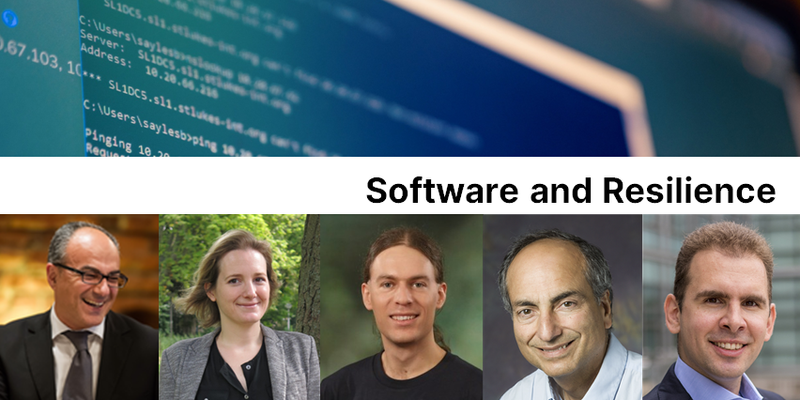In the crisis and disaster management of digital cities, a fail-safe IT infrastructure and resilient software systems are of significant importance. With their help, crisis patterns can be detected early and reliably from distributed data sources, the ability to act can be preserved in crisis situations, and a fast and well-coordinated emergency response can take place.
Five renowned international scientists* will talk about the latest challenges and solution approaches of resilient software systems for digital cities in the public online workshop Software and Resilience, on June 14 as part of emergenCITY Week 2021.
Monday, June 14, 2021, 10:00 a.m. - 12:45 p.m. and 3:00 p.m. - 4:45 p.m. Workshop Software and Resilience Click here for the event
Five talks on software and resilience.
10:00 - 10:45 am
In the talk Distributed Systems - The Next Level, Prof. Schahram Dustdar from TU Wien analyzes the role of edge, cloud and human-based computing, as well as AI in the co-evolution of distributed systems for the new decade. He will show how cyber-physical structures completed by AI can enable seamless distributed end-to-end systems.
11:00 - 11:45 am
Prof. Tina Comes of TU Delft will present From Smart to Resilient Cities, which explores the opportunities for better planning and decision-making in the face of adverse events through the analysis of multiple data sources. Using several case studies, she outlines the key principles of resilience and shows how data and information can be used to improve disaster preparedness.
12:00 - 12:45 p.m.
In the lecture Local-first software: Collaborating without depending on servers, Dr. Martin Kleppmann from the University of Cambridge presents research on algorithms for “local-first” collaboration software that works without servers over any kind of network. This will allow it to continue to be used in a disaster scenario where datacenter connectivity fails.
15:00 - 15:45
Prof. Gul Agha from the University of Illinois discusses advances in IoT which can facilitate smart physical infrastructure in his talk Building Smart Structures with Decentralized Control and Predictive Monitoring, and then addresses the opportunities and challenges in developing software systems that rely on edge devices with limited processing, storage, and energy.
16:00-16:45
The lecture Accuracy-aware Programming Systems for Edge by Prof. Sasa Misailovic also from the University of Illinois presents work on programming systems for accuracy aware optimization of programs. The focus of the talk is “ApproxTuner”, a novel automatic framework, for optimizing tensor-based applications.



